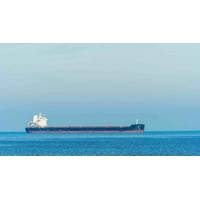Libya Plans to Boost Production at Sarir, Messla Fields
Libya aims to boost production at the southeastern Sarir and Messla oilfields feeding the Hariga terminal to 180,000 barrels a day, a spokesman for the state operator said on Wednesday.
Libya has restarted both fields, shut after a pipeline blast, which halted crude supplies to Hariga, the biggest onshore export port still working amid growing chaos in the OPEC member country.
On Tuesday, pumping levels reached around 40,000 barrels, an industry source said.
"We want to increase output gradually to 180,000 barrels a day, said Omran al-Zwai, spokesman for Arabian Gulf Oil Co (AGOCO), which operates the field and Hariga port.
Hariga used to export around 120,000 bpd but at least 20,000 bpd are needed to feed the Tobruk refinery, an industry source said, adding that 180,000 bpd had been the original pumping level before the pipeline blast.
With the closure of the Hariga port due to the pipeline blast, Libya's oil exports had fallen to less than 200,000 bpd - a fraction of the up to 1.3 million barrels exported daily by Libya prior to the ousting of Muammar Gaddafi in 2011.
Most Libyan oilfields have stopped working due to the struggle between the recognized government in the east and a rival administration that took control of the capital Tripoli last summer.
The emergence of militants aligned with Islamic State have further complicated plans to restart oil production.
Hariga, located near the country's eastern border with Egypt, has turned into the largest exporting port after the two biggest - Es Sider and Ras Lanuf - stopped working in December due to fighting between rival factions.
Only the small Zueitina port and two offshore oilfields still export oil. The port at Brega, also in the east, is still open but only supplying the 120,000 bpd-Zawiya refinery in western Libya.
Proceeds from the oil exports will go to the central bank, which has sought to stay out of the conflict.
Reporting by Ahmed Elumami, Ayman al-Warfalli and Ulf Laessing



